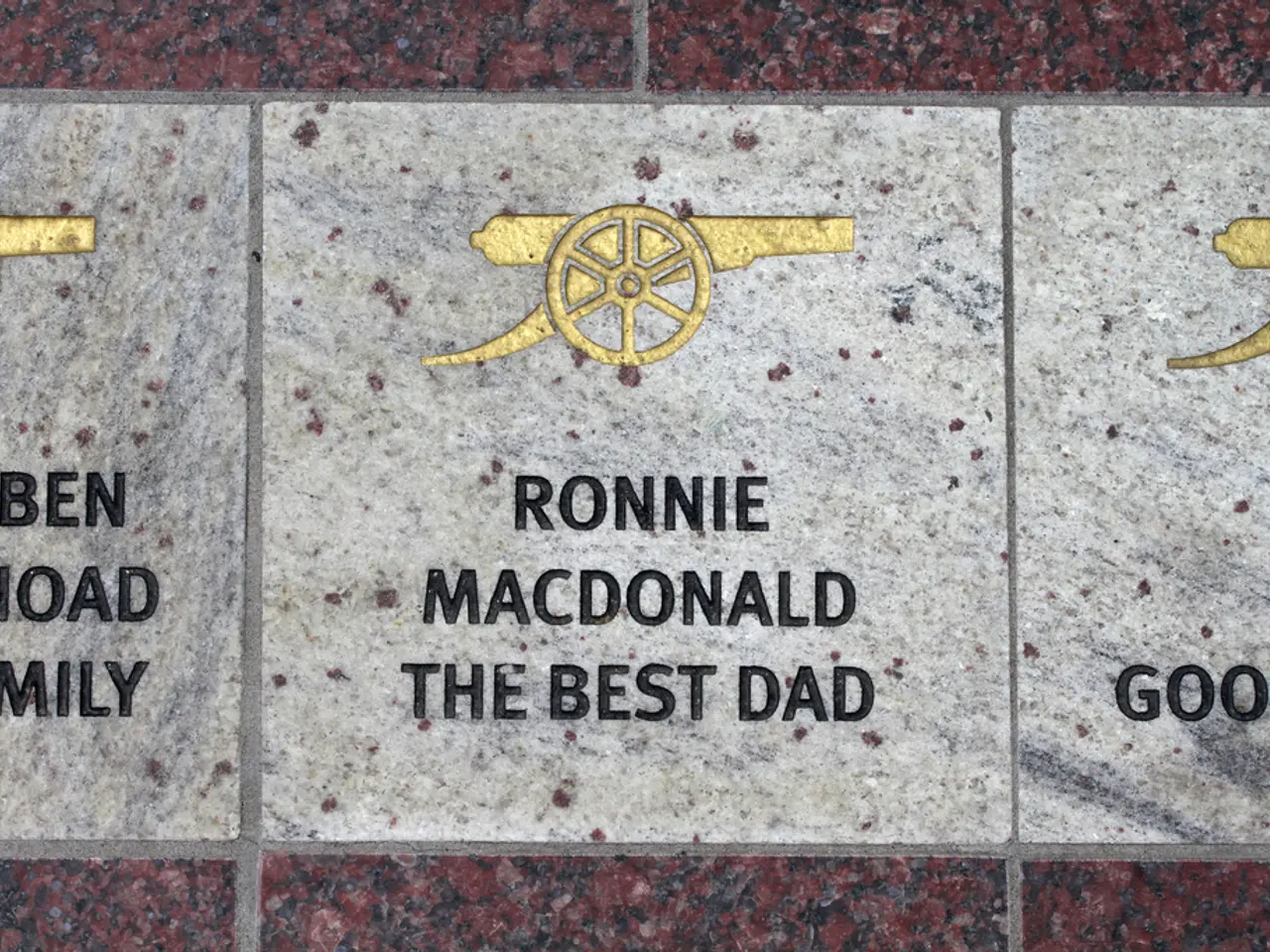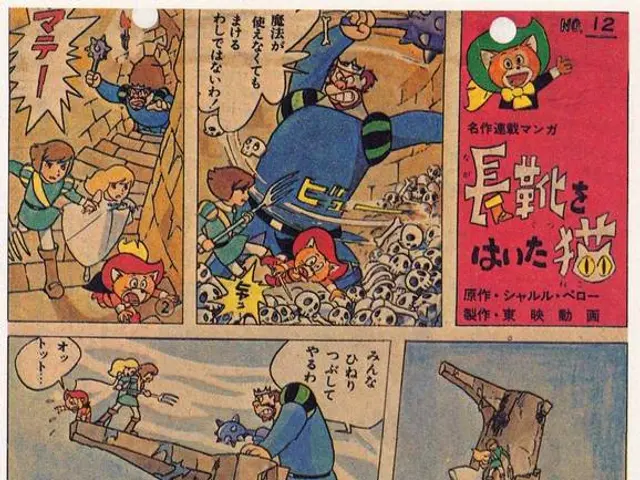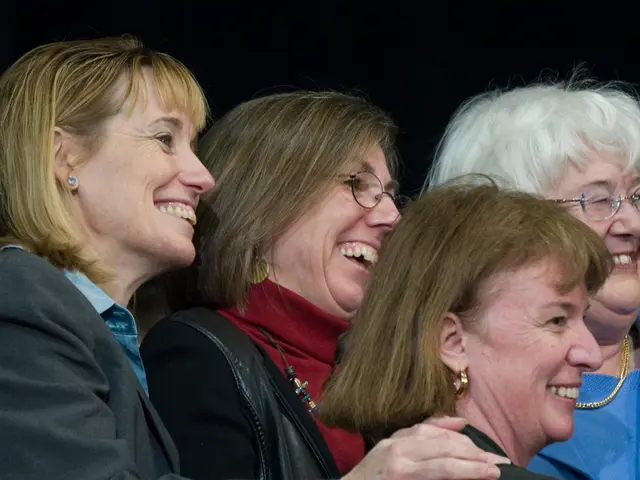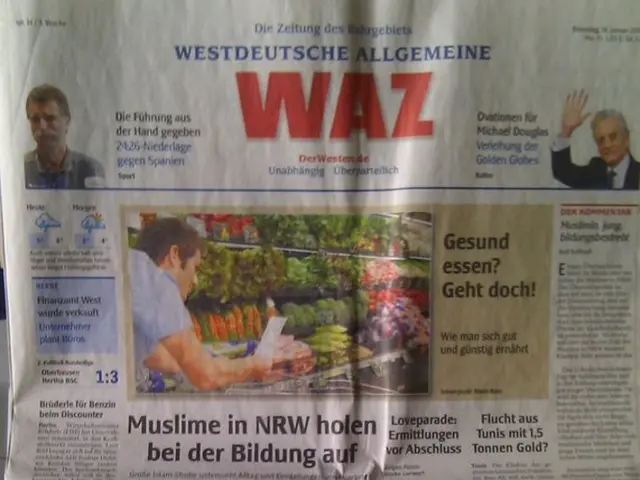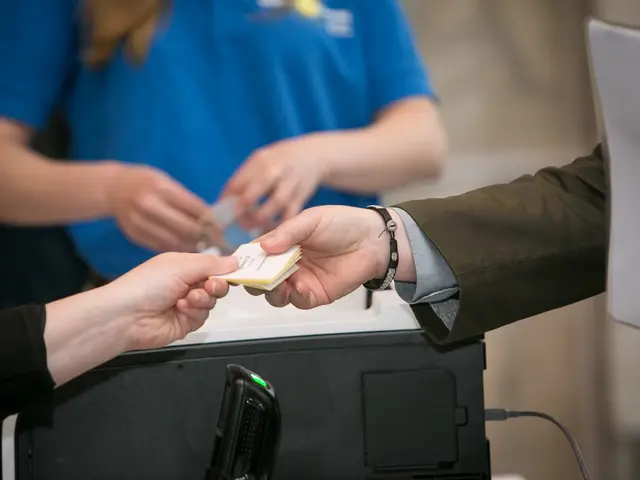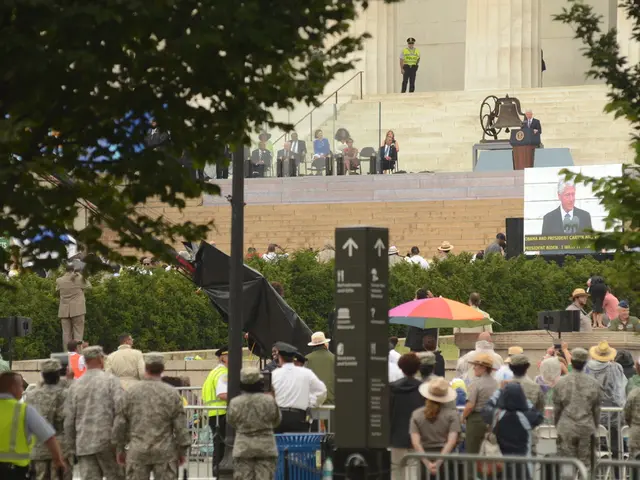Commemorating the Devastation Reached 80 Years in Nagasaki
In the heart of Japan, Nagasaki marked the 80th anniversary of the devastating atomic bombing that took place on August 9, 1945. The solemn commemoration served not only as a remembrance of the past but also as a powerful call for peace, nuclear disarmament, and a world free from war's devastation.
The ceremony held at the Peace Park was a poignant reminder of the horrors inflicted during the dark days of war. The city, along with Hiroshima, has become a symbol of the horrors of war and peace, a testament to the destructive power of nuclear weapons.
Approximately 70,000 people were killed instantly in Nagasaki, with another 75,000 injured. The total death toll exceeded 200,000 between Nagasaki and Hiroshima. The event underscored the urgency of real change to end the existential nuclear threat, urging the global community to honour the hibakusha (survivors) whose testimony stands as a "moral force for peace."
Speakers at the commemoration emphasised the need for immediate action to end all wars and the eradication of nuclear weapons. Shiro Suzuki, the current mayor of Nagasaki, urged the world to learn from history to ensure that Nagasaki remains the last city to suffer an atomic inferno. He called for the abolition of all nuclear weapons in the world and for overcoming the current cycle of confrontation and fragmentation.
UN officials, including the Secretary-General and the High Representative for Disarmament Affairs, conveyed solidarity with survivors and stressed the importance of carrying their message forward to achieve nuclear disarmament. These statements linked remembrance to building peace in the present and future, emphasising nuclear weapons' eradication as essential for humanity’s survival.
Last year, the Japanese organization Nihon Hidankyo, consisting of survivors of the atomic bombings of Hiroshima and Nagasaki, was awarded the Nobel Peace Prize. The Japanese Empire surrendered on August 15, 1945, following the atomic bombings of Hiroshima and Nagasaki, which were carried out by the United States.
The article was sourced from dpa, a German news source, and originally published on ntv.de. Shiro Suzuki, in his peace declaration, warned of the growing danger of a nuclear war and stated that the existential crisis for humanity due to nuclear weapons has become immediate. The demand for Japan to join the UN treaty prohibiting nuclear weapons was made by Hiroshima's mayor three days earlier. The atomic bomb dropped on Nagasaki in 1945 was named "Fat Man."
This commemoration serves as a stark reminder of the devastating consequences of nuclear weapons and the urgent need for global action towards a nuclear-weapon-free world. The city of Nagasaki, Japan, continues to stand as a beacon of hope and a call to action for peace and nuclear disarmament.
References: 1. ntv.de 2. dpa 3. Nobel Peace Prize 4. UN Office for Disarmament Affairs
The Commission, in light of the ongoing discussions about nuclear disarmament, has also been consulted on the draft directive regarding peace and disarmament. This commemoration in Nagasaki serves not only as a powerful reminder of the tragedies of politics but also as a call to action in the realm of general news, urging for immediate steps towards a nuclear-weapon-free world.
